Last updated April 16, 2025
There’s no better time to start a new online business from home today, 2021.
You can follow my strategy below and start an online business with low investment upfront.
I’m living evidence that my strategy works. My online business, a blog about puppy training, made $259,463 in revenue in 2020.
Besides the popular blog, I have a puppy training YouTube channel, a big email list, and a social following. All of that generates ad revenue, affiliate income, and income from self-created products.
I’ve divided this article in 4 chapters:
#1 Two types of online businesses
#2 How to start (example #1)
#3 How to start (example #2)
#4 Conclusion
Know the difference between these 2 types of online businesses
You should know the difference between these two online businesses:
- You can start an online business where you sell your time for money. Examples are consultants, web designers, web developers, virtual assistants, writers, freelancers, etcetera.
- You can start an online creator-business where you earn creator-income instead of solely relying on selling your time for money.
What are creators?
Creators are bloggers, educators, influencers, YouTubers, podcasters, authors, etcetera. It can also be a combination.
Selling your time for money can be good and may be necessary for the short run, but it isn’t the best way of making money in the long run, in my experience.
In my case, I went from a part-time to a full-time creator in 2018.
At first, I worked my 9-to-5 job while starting my creator-business.
After my last day at my 9-to-5 job in 2017, I supplemented my income by doing marketing consultancy jobs as a freelancer.
In 2020 I stopped all consultancy work and now only have creator-income. If you want to read my full story, you can do so here.
You can start building your creator-business on the side while working your 9-to-5 job or freelance job. That’s what I did.
The big differences between a freelance or consultancy business (selling time for money) and a creator-business are:
Make more money
As a freelancer or consultant, you need to raise prices to make more money or work more hours.
As a creator, you can work smarter (and sometimes harder) to make more money.
How much $$$ you can earn per day
As a freelancer or consultant, there’s a limit to how much you can earn per day since there are only 24 available hours.
As a creator, there’s no limit to how much you can earn per day—ever heard of an article or video going viral? Furthermore, I self-published 4 books about puppy training. For me, it doesn’t matter how many orders I have per day. The sky is the limit.
Make money while you sleep
Who doesn’t want to make money while they sleep? Well, freelancers and consultants clearly don’t since they only get paid for every hour they work.
Creators, on the other hand, can take some time off without anyone noticing. For example, my puppy training business pretty much runs on autopilot. I only spent 1-3 hours per week on it, and it generates way more than an average salary. Most often, when I wake up, I see I made some sales. Furthermore, people can watch my YouTube videos 24/7, and those videos generate ad revenue.
Do you want to be the boss?
Freelancers and consultants do have their own business but are they the boss? Most often, the client is the boss instead of the freelancer.
Creators can be creative and decide on their own. Of course, listening to their audience is wise but not always necessary nor the best.
Financial risk
Most often, 90 to 95% of a freelancer’s monthly revenue comes from 5-10% of their clients. If this is the case, freelancers and consultants run a significant risk of ruining their family’s financial future if their biggest client terminates their contract.
Full-time creators have thousands, if not millions, of people following their brand online. If a creator notices a decline in monthly viewership, they can change strategy before it becomes a problem. It’s not that suddenly 90% of a creator’s followers disappear.
How to start an online creator-business (example #1)
The easiest way to start as a creator is to publish content about a particular topic you know much about, are very skilled at, or have a high interest in.
But I don’t want to leave you in the dark, so I will share my process for starting a new online business below.
As an example, I’ll share my process of starting an online business in the category PC gaming hardware and software.
This example idea is to create educational or entertaining content in the PC gaming hardware and software category and share it on a blog or YouTube channel.
After a while, you start to see some initial traction, and you start making money with ad revenue, affiliate income and then transition to brand deals and maybe selling self-created products in the future.
So, what’s the first step when you’re researching a topic like PC gaming hardware and software?
You start by doing keyword research.
I use Google Keyword Planner for my keyword research.
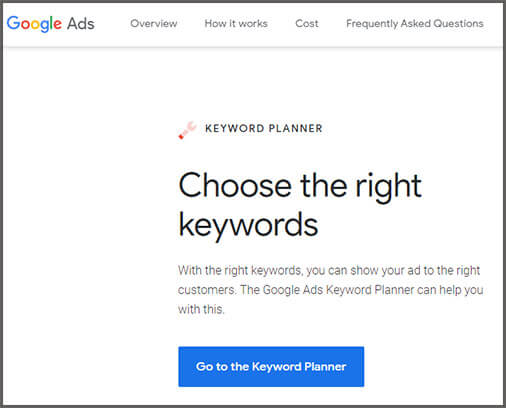
The Keyword Planner shows you how much search volume there is on specific keywords in Google.
For this example, the idea is to list potential keywords related to PC gaming hardware and software.
Google Keyword Planner helped me find the following 10 keywords:
- best graphics card for apex legends – 110 searches per month
- best gpu apex legends – 10 searches per month
- best graphics card for valorant – 90 searches per month
- best graphics card for gaming – 18,100 searches per month
- best gpu 2020 – 12,100 searches per month
- best GPU for gaming 2020 – 1,600 searches per month
- best GPU for streaming and gaming – 210 searches per month
- best graphics card Fortnite – 50 searches per month
- ninja pc setup – 1,300 searches per month
- best budget graphics card 2021 Fortnite – 0 searches per month
Once I have 10 or so keywords, I continue by analyzing my competitors.
In regards to YouTube:
- I want to know who the better-known players are in this category. Knowing who they are, I can analyze them, see what topics they talk about and what’s working for them, and whether I see myself doing something similar.
- How many subscribers the better-known YouTube channels have. Knowing this will give me an idea of how big this market is.
- Knowing how many daily viewers these channels have gives me an idea of how big the market is and how much money they make with ad revenue, sponsorships, affiliate income, etcetera. I use the tool https://www.tubebuddy.com/ to see how many daily viewers they have.
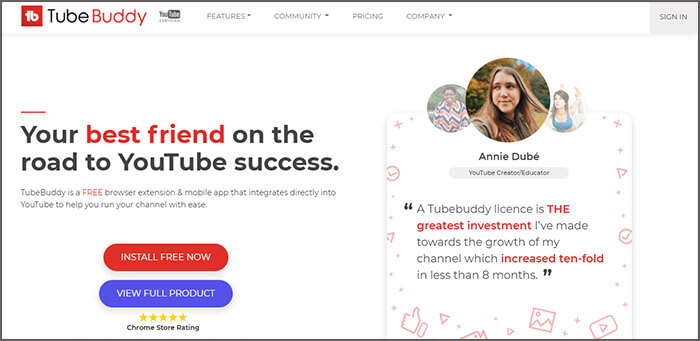
Questions for you to answer:
- What YouTube video topics do the better-known players talk about? Do you see any recurring themes they use you could replicate for your videos as well?
- How many subscribers do the better-known channels have?
- How many daily views do the better-known channels have?
- What do YOU bring to the table when entering this market? What unique elements do and can you add to your videos?
In regards to Google:
- I want to know who the better-known blogs or websites are in this category. Knowing who they are, I can analyze them, see what topics they talk about and what’s working for them, and whether I see myself doing something similar.
- I want to know how much monthly traffic these blogs have. Knowing this will give me an idea of how big this market is and how much money they make with ad revenue, sponsorships, affiliate income, etcetera. I use the free version of https://www.similarweb.com/ for this and a paid tool called https://ahrefs.com/.
- I’m curious about the domain rating of these better-known blogs that rank high in Google for the keywords I found doing keyword research. This domain rating will tell me how hard it is to rank for these keywords in Google. I use a paid tool called https://ahrefs.com/ to find the domain rating of these websites.
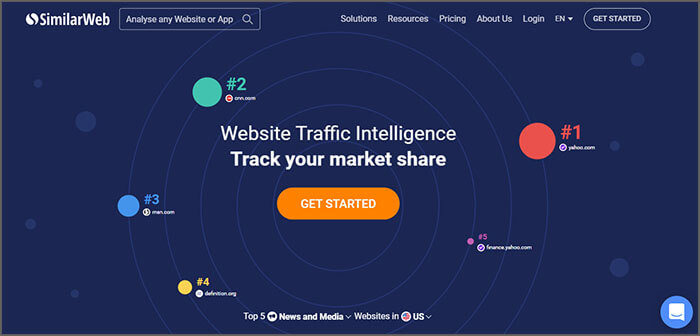
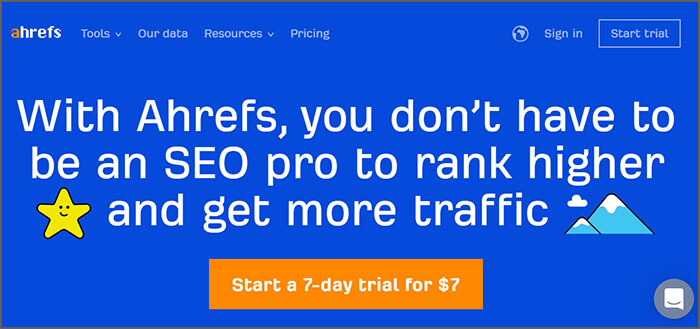
Questions for you to answer:
- What’s the quality of these blog posts ranking high in Google? Can you beat them by creating a better resource?
- How many monthly visitors do they have?
- What do you bring to the table when entering this market? What unique elements do and can you add to your blog posts?
In regards to social media:
I want to know what social media platforms the better-known players are active on. If any.
In regards to the business model:
By knowing what business models they utilize gives me an idea of how lucrative this market is.
A promising sign is that the better-known players in this category use all the available creator business models: (1) ad revenue, (2) brand deals, (3) affiliate income, and (4) selling self-created products.
The fewer business models, the better-known players use, the less interesting it is to start a business in this category.
Watch their videos, read their video descriptions, check their website and social media posts to see what they talk about and where they’re sending their traffic to earn money.
Now you know what to pay attention to when analyzing your competition and whether you see room for your brand.
Just make sure before you start creating content you do your due diligence of researching the category to make sure there’s plenty of potential in many different ways. Also, check out this post where I’ll cover how much YouTubers make. By reading that post you’ll get a better understanding of how lucrative the category is you have in mind.
Let’s continue.
Firstly, let’s dive into YouTube!
Let’s start with the keyword [best gpu for apex legends] as an example.
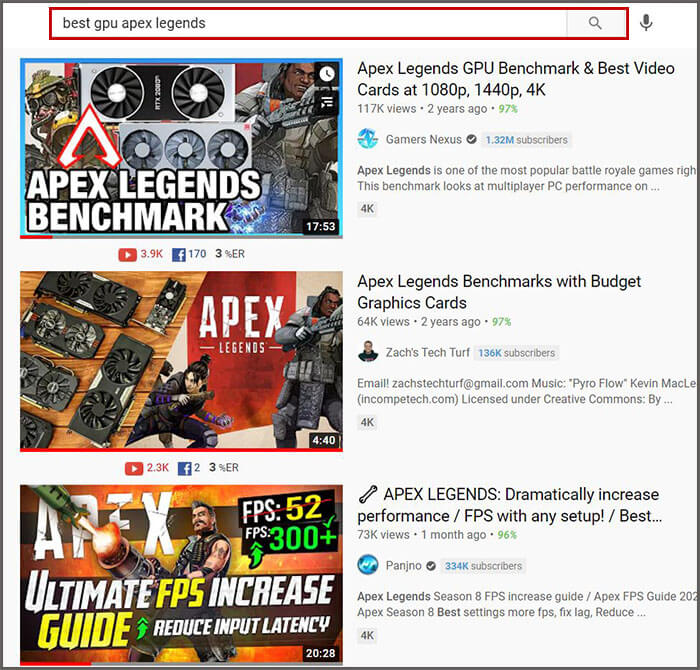
For the ones that don’t know, Apex Legends is a first-person shooter game.
The first thing I notice is that the top 2 videos are already two years old.
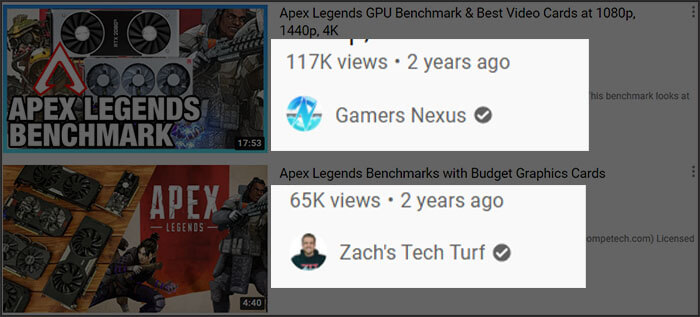
By clicking on the first video and sorting the comment section from new to old, I notice the last comment is from 8 months ago. In other words, this keyword isn’t highly relevant any longer.
I know for a fact that the game Apex Legends launched two years ago. So the first thing I learned by doing this research is that content for keywords like [best graphics card for {GAME}] probably works best when the game just launched.
That makes sense, right?
I also notice that the videos on spot #5 and #6 talk about the best game settings.
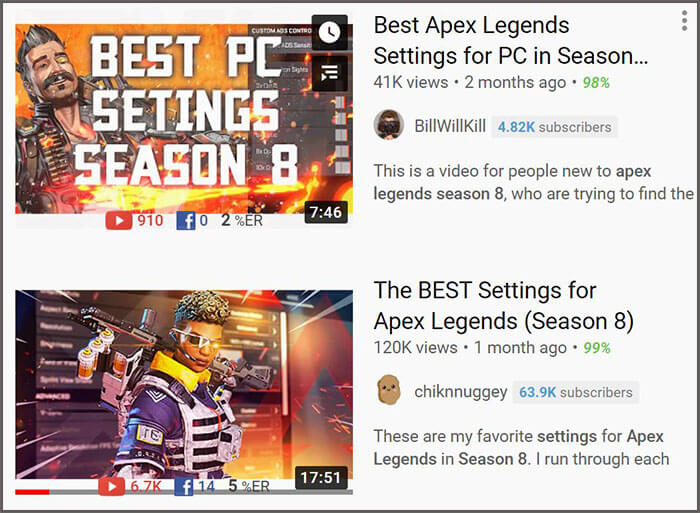
What is more, this first video got more than 40,000 views, and the channel has less than 5,000 subscribers.

These signs are vital for you to take into account because it means there’s high search volume for this content but not that much competition.
How do I know this?
Because if there were high competition, these smaller channels wouldn’t have had so many views on these videos.
I often go back and forth between steps #1 and #2.
Knowing [best settings] is a viable keyword, I go back to Google Keyword Planner to find keywords related to [best settings] for games.
Just FYI, we started this business idea with the category PC gaming hardware. You might consider being more specific than PC gaming hardware. You could focus on particular gaming genres instead of PC gaming as a whole. Being more specific helps you stand out from the crowd.
So, I went back to step #1 to do keyword research, and I found a new keyword:
[apex legends best settings] – 1,900 searches per month.
When searching YouTube, I found a related keyword, and the top 2 videos don’t have that many subscribers but DO have lots of views!
[best apex legends settings pc season 8]
The moment season 9 launches, I will do my absolute best to create a video as [best Apex Legends settings PC season 9] as the primary keyword. I know game settings aren’t hardware, but it shows how my research process works.
Your goal as a beginner is to find low competition keywords with high search traffic.
For more information on starting a YouTube channel check out this blog post.
Okay, so what about the blog? Why do you need a blog?
The advantages of having a blog:
- A blog helps you to show a better overview of your most important content. You can design your blog the way you want it to look. I always compare it with IKEA stores and the arrows they use on their floors, strategically guiding you where to go. You can replicate that on your blog, but you can’t do it on YouTube.
- Your blog doesn’t promote your competitors. YouTube has only one goal, and that’s to keep their visitors on their platform as long as possible. They don’t care about your goals. That’s why YouTube shows your subscribers videos from other creators in the suggested video tab. Once someone visits your blog, they won’t get triggered by other links to competitor blogs because YOU, and only you, control your blog.
Let’s say I convinced you of needing a YouTube channel and a blog for your next business idea.
What content do you put on your blog, and what content on your YouTube channel?
Well, it depends.
An example:
You can easily re-use the content you created for the YouTube video Best Apex Legends Settings PC Season 8 for your blog.
How?
Firstly, I would search in Google on [Best Apex Legends Settings PC Season 8] and see what websites pop up.
When doing this, you’re on the lookout for 3 things:
1 – Does YouTube pop up on the first page of Google? If so, the people searching for this keyword most often click on a YouTube video.
2 – Whether the websites that pop up only talk about the keyword you entered in Google.
In this example, I typed in Google [Best Apex Legends Settings PC Season 8], and the top-ranking website’s header = Apex Legends Settings.
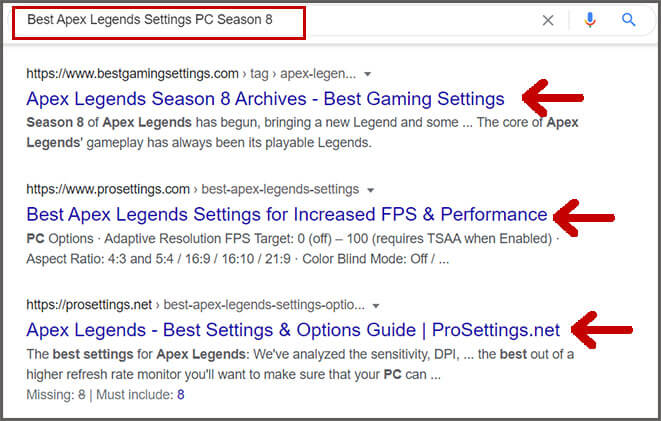
If you know a thing or two about SEO (search engine optimization), you know that they are hoping to rank for [Apex Legends Settings], too, besides [Apex Legends Settings season 8].
By knowing this, I would suggest you create a post on your blog Apex Legends Settings you can continually update, the same as they do.
You don’t have to publish a new post when something changes because you can just edit and update that blog post.
If you want to change 1 thing about your video Apex Legends settings on YouTube, you need to recreate that video and republish it. There’s no way to edit a small part of a YouTube video.
3 – What’s the content quality of these top pages?
When you create content for this keyword, will your content have a higher perceived value?
Simply said, will your page help the visitor more than the top-ranking pages?
For more information on how to start a blog check out this blog post.
How to start an online creator-business (example #2)
I thought it would be fun to write down the thought process of my own project here. If you don’t know so already, this blog aims to help creators go full-time with their craft.
First, I selected this topic because I have more than 11 years of digital marketing experience and went through the struggle of being an aspiring creator, part-time, to become a full-time creator eventually.
I feel I can bring a lot of first-hand experience and knowledge to the table. This is always a good sign, but you don’t have to be an expert in the category you’re exploring. For example, I started my puppy training blog in 2011, and I didn’t know a thing or two about puppy training. In 2020, my online puppy training business made $259,463 in revenue.
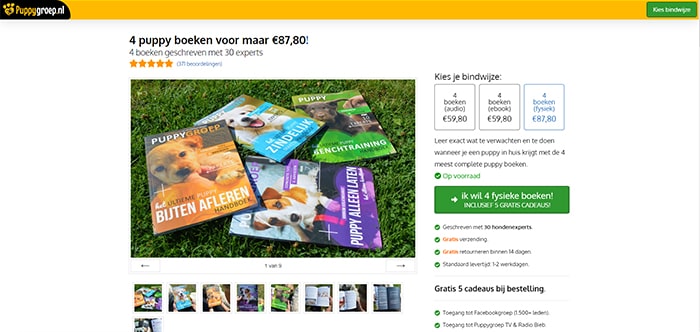
I genuinely believe that the best and most lucrative way to start an online business is by either starting a blog or a YouTube channel. If you have the time, energy, and knowledge, you can start a blog and a YouTube channel simultaneously.
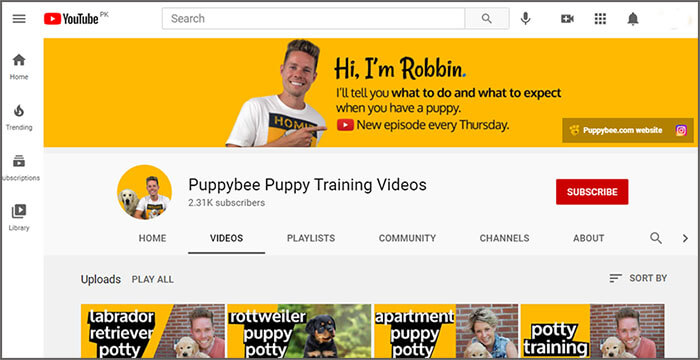
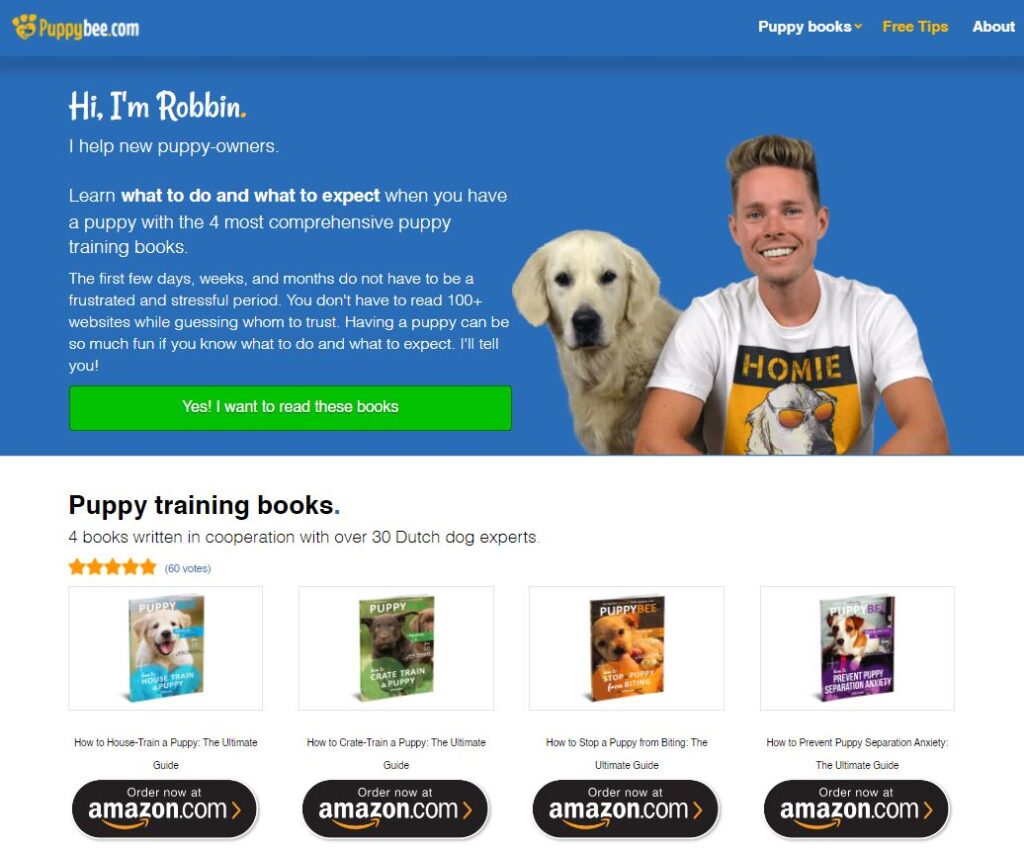
I feel I have the time, energy and knowhow to start a blog and YouTube channel simultaneously.
The blog, creatoregg.com
Firstly, we have my blog, creatoregg.com. This blog’s idea is that you can find in-depth how-to-guides and other invaluable articles to help creators. Examples are how-to-guides for starting a blog, YouTube channel, email list, podcast, and a social media following.
These how-to-guides align with my vision of starting an online business with either a blog or YouTube channel.
There’s money to be made with ads, affiliate marketing, sponsorships, and maybe even self-created products within these how-to-guides.
The next thing we as creators use is tools.
I, as a creator, use many different software tools that make my job easier. Therefore I create in-depth guides on my blog around the best tools for creators. A few examples are grammar check software, back-up software, online course software, email marketing software, etcetera.
I understand that this category I’m in is highly saturated and competitive. Still, I believe that anyone can go a long way with persistence and high-quality content, especially if the category you’re exploring is of high-interest to you.
The YouTube channel
I see it repeatedly that by consistently showing up on YouTube, you can build a real following. Or, in other words, fans/community.
It’s important to know your strengths, and I believe one of my strengths is creating YouTube videos.
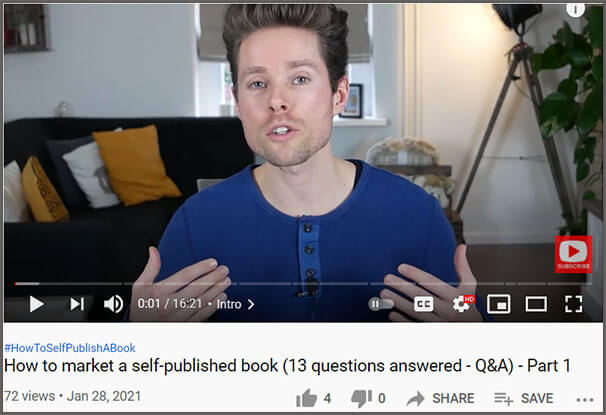
I already have plenty of years of experience with making videos and collected quality video gear over the years.
Furthermore, I transformed my home-office into a YouTube studio to make it easier for me to make videos.
I believe it’s harder to make quality videos than writing a quality blog post, and therefore, I need to use that as my unfair advantage over others.
My YouTube strategy is twofold.
I share more personal stuff on my personal YouTube channel, like my personal investment strategy, my personal online business strategy, and videos around the latest trends.
I will have the full scale of all the income streams I could wish for on this personal channel, and that’s a sign there’s money to made in this category.
Looking at other YouTubers in this category, I see that they all use YouTube ad-revenue (high RPM in this category), affiliate marketing with high commissions (software products most often have high commissions), sponsorships, and most of the other creators created their own online products as well.
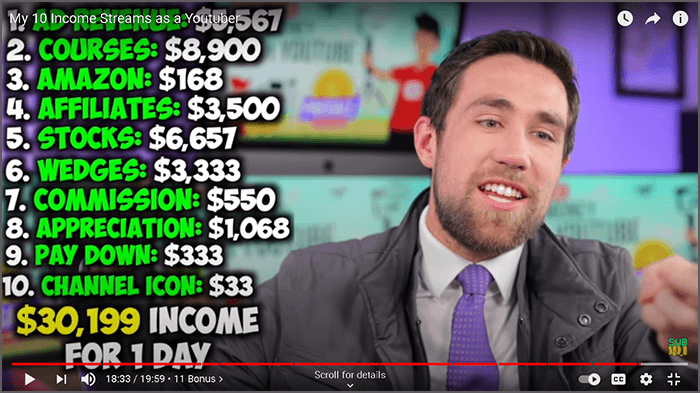
Furthermore, it’s a good way to promote this blog, Creatoregg.com, as well from time to time.
Then I also have a 2nd YouTube channel, Creator Egg.
On my 2nd channel, I mainly publish software product reviews and how-to videos.
I split these between two different channels because I believe these software product reviews and how-to videos are only relevant to a specific audience.
Again, looking at the potential income streams, there’s YouTube ad-revenue with high RPM.
Then there’s lots of affiliate marketing potential since I mainly discuss products, and the beauty of software products is that they often have a high commission payout since they have high marges.
If I compare the software product commissions with my dog training business, where I also do affiliate marketing, it’s a big difference. Dog training is far less lucrative.
The next thing is sponsorships.
Once I build an audience, I believe plenty of companies are lining up wanting to be a sponsor. Again, my audience will have a high purchase intent since I mainly discuss software products.
Lastly, there are self-created products.
I will likely create one or more digital products one day to help my audience.
I did the same thing with my online puppy training blog. Once I had an audience, I surveyed them and later published my 4 self-published books. These books are my main revenue driver.

The difference between my puppy training products is that they sell in the range of 20-120 dollars, and online courses in marketing/business sell for 300-10,000 dollars. Again, the future income potential is way higher in a business-related category.
Don’t get me wrong. It’s not all about money, but you shouldn’t deny the importance of it either.
The main reason I focus on marketing topics is not just because there’s money to be made. It’s because I feel that is where my strengths are.
Remember, I have 10+ of experience in digital marketing. In 2014 I graduated with a Bachelor’s degree in marketing and worked as an internet marketing consultant for two years at an internet marketing agency. Then I started my online puppy training business, wrote and self-published 4 books and an online dog training course. In 2020, I made $259,463 in revenue from that business. During all those years, I learned a lot that I would like to share my knowledge with others.
Conclusion
My strategy is pretty simple:
- Pick a topic you have a high-interest in.
- Create content (follow my step-by-step method below).
- Build real followers.
- Earn money with ads, brand deals, affiliate income, and eventually create and sell your own product.
I’ll do my best to continue updating and refining this article to share more specific ideas for you to start your online business.
Now, I would like to hear from you.
If you learned anything from this blog post, please let me know in the comments below.
Also, if I inspired you in one way or another to explore a topic, please share your topic idea in the comments as well.
We can all learn from each other.
Hopefully, we’ll meet again! Cheers!
Sincerely,
Robbin 👋